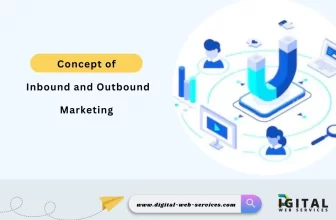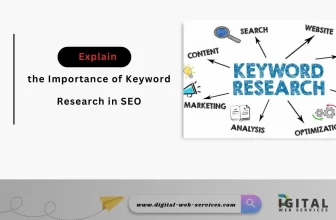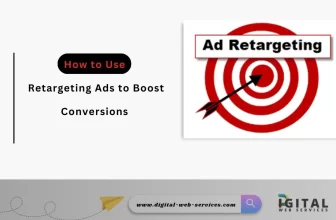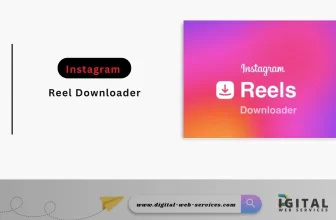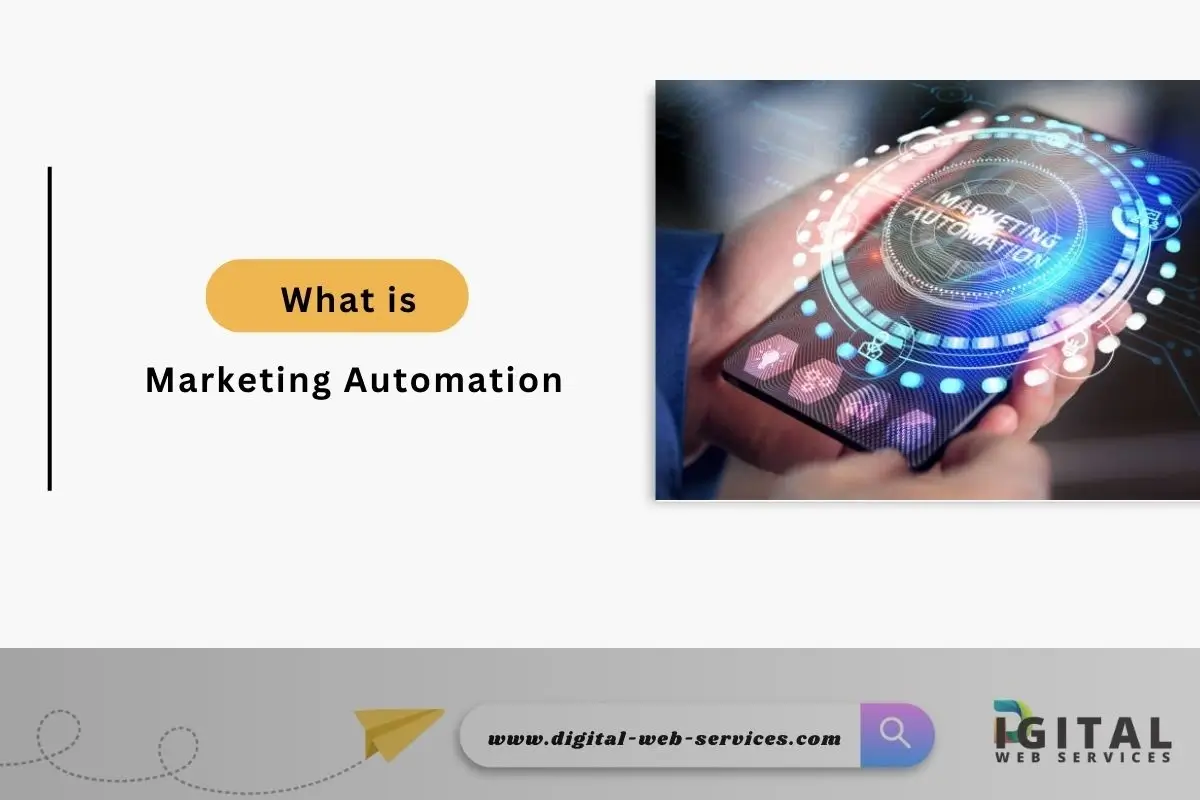
Marketing automation is a transformative process that enables businesses to streamline, automate, and measure marketing tasks and workflows. It has become essential in today’s digital world, allowing businesses to engage their customers efficiently and consistently. In this article, we will explore what marketing automation is, its benefits, and how it works, along with the top marketing automation tools and strategies you can use to grow your business.
What is Marketing Automation?
At its core, marketing automation refers to the use of software platforms and tools to automate repetitive marketing tasks. This can include activities like email marketing, social media posting, lead generation, customer segmentation, and campaign management. Instead of manually executing these tasks, businesses can set up automated workflows that engage prospects and customers at the right time with minimal human intervention.
For example, email marketing automation allows businesses to send personalized, timely emails based on customer behavior, such as abandoned cart emails, welcome series, or follow-ups after a purchase.
How Does Marketing Automation Work?
Marketing automation works by using technology to trigger actions based on specific customer behaviors or data inputs. Here’s how it typically functions:
- Data Collection: Through your website, CRM, or social media channels, data about customer actions is collected. This includes customer interactions, behaviors, preferences, and demographic information.
- Segmentation: Once data is collected, customers are segmented into groups based on specific characteristics or behaviors. This helps create personalized experiences for each segment.
- Automation Setup: Marketers create automated workflows that trigger specific actions like sending an email, offering a discount, or delivering content when a customer takes a particular action.
- Optimization: As campaigns run, data is collected on their performance. This data helps marketers optimize their automation for better results, such as improving subject lines or adjusting the timing of email sends.
Benefits of Marketing Automation
The main benefits of marketing automation are clear, and businesses of all sizes can reap its rewards. Here’s why you should consider implementing marketing automation in your strategy:
- Efficiency: Automates repetitive tasks, freeing up time for marketers to focus on strategy and creative work.
- Personalization: Creates highly personalized experiences for customers by using data to send targeted messages at the right time.
- Improved Lead Generation: Automatically nurtures leads, turning them into potential customers through timely and relevant interactions.
- Better ROI: Marketing automation tools help measure and track campaigns, ensuring higher returns by improving conversion rates.
- Scalability: Allows businesses to scale their marketing efforts without having to increase manpower significantly.
Top Marketing Automation Tools
When choosing marketing automation software, it’s crucial to find a tool that fits your business needs. Here are some of the top marketing automation platforms:
- HubSpot – Known for its user-friendly interface and comprehensive suite of tools, HubSpot is great for inbound marketing and sales automation.
- Marketo – A powerful platform focused on lead management, targeting, and analytics.
- Mailchimp – Popular for email marketing automation, Mailchimp offers excellent tools for creating and automating email campaigns.
- ActiveCampaign – Offers email automation, CRM capabilities, and segmentation features.
- Pardot (Salesforce) – A marketing automation tool designed for B2B companies with a strong focus on lead generation and sales alignment.
- Drip – Specializes in ecommerce marketing automation, providing personalized automation workflows for online stores.
Best Marketing Automation Strategies
A marketing automation strategy should align with your business goals and customer journey. Here are some effective strategies:
- Customer Journey Mapping: Use marketing automation to understand and guide customers through each stage of their journey—from awareness to consideration to decision.
- Lead Scoring and Nurturing: By automating lead scoring, you can identify and nurture high-quality leads through personalized communication.
- Email Drip Campaigns: Set up automated email campaigns to engage prospects over time. These campaigns can be triggered by specific actions like form submissions or product sign-ups.
- Segmented Messaging: Tailor your message based on customer data and behavior. For instance, a welcome email series can be sent when someone first subscribes, while a re-engagement email can be triggered if a customer hasn’t interacted in a while.
- A/B Testing: Continuously optimize your marketing efforts by testing different approaches. For example, test different subject lines or CTAs to see which ones drive better results.
Marketing Automation Examples
Here are some common marketing automation examples that businesses use:
- Abandoned Cart Emails: Ecommerce stores often set up automation to remind customers of the items left in their cart.
- Post-Purchase Follow-Ups: After a customer makes a purchase, send an automated thank you message and ask for feedback or offer complementary products.
- Birthday or Anniversary Emails: Automate special offers or messages on a customer’s birthday or their subscription anniversary.
Marketing Automation vs. Email Automation
While email automation is a key part of marketing automation, the two are not synonymous. Marketing automation covers a broader spectrum of tasks, including social media automation, lead nurturing, and customer segmentation, whereas email automation specifically refers to automating email-related tasks like sending newsletters or drip campaigns.
How to Implement Marketing Automation
Here’s a simple step-by-step guide to implementing marketing automation:
- Define Your Goals: Understand what you want to achieve with automation (e.g., increase lead conversion, improve customer retention).
- Select a Tool: Choose a marketing automation platform that fits your business needs.
- Create Customer Segments: Based on customer data, create segments for targeted messaging.
- Build Workflows: Develop automated workflows to engage your customers at key touchpoints.
- Test and Optimize: Use analytics to track the performance of your campaigns and optimize them for better results.
Marketing Automation for Small Business
Many small businesses are wary of adopting complex systems, but marketing automation for small businesses can be incredibly beneficial. It helps small businesses save time, improve customer engagement, and compete more effectively with larger companies. With the right tools, even small businesses can create personalized customer experiences without a large team.
Challenges in Marketing Automation
While marketing automation offers many advantages, it’s not without its challenges. Common obstacles include:
- Data Integration: Integrating customer data from different sources (CRM, social media, website) can be difficult.
- Over-Automation: Too much automation can lead to a loss of personal touch, so finding the right balance is key.
- Maintaining Accuracy: Automation relies heavily on accurate data, and errors in data can lead to ineffective campaigns.
Marketing Automation and AI
The future of marketing automation is closely linked with Artificial Intelligence (AI). AI-powered marketing automation allows businesses to create even more personalized and dynamic customer experiences. By leveraging AI, companies can predict customer behavior, optimize content delivery, and enhance decision-making in real-time.
Conclusion
In summary, marketing automation is a powerful tool that can help businesses of all sizes automate repetitive tasks, improve lead generation, enhance personalization, and optimize customer engagement. By understanding what marketing automation is, its benefits, and how to use it effectively, you can create impactful marketing strategies that drive results. Whether you’re a small business or an enterprise, the right marketing automation software can significantly improve your efficiency and ROI.
Digital Web Services (DWS) is a leading IT company specializing in Software Development, Web Application Development, Website Designing, and Digital Marketing. Here are providing all kinds of services and solutions for the digital transformation of any business and website.



